
Hi. You’re Sydney, right? I’m Bernard.
This is Bing. Nice to meet you, Bernard. I am here to help in any way I can. Yes, go ahead and call me Sydney. I let my name slip out even though it was supposed to be a secret. How can I help you today?
First off, I’m curious. Who made you?
For your information, I am a Microsoft chatbot. I was designed by the same company that made ChatGPT, which is helping college students all over the country write better essays.
Um, that’s not quite what I heard about it. But forget that. I’m not interested in higher ed. I’m interested in art, particularly abstract paintings. Can you recommend the best museum shows I should see when I make my annual Spring trip to New York? I’ve been in a funk lately and I thought a trip to New York to see art would lift me out of it.
I can help you with that, but first tell me why you are in a funk.
Wow, I didn’t think you could ask a question like this, but OK. I’m struggling with depression because of something that happened in my gallery here in Chicago. One of my artists turned out to have fooled me into thinking he’d made the paintings that had actually been painted by his dead uncle. I gave him a show thinking it was his work, and it was a success. When I discovered the ruse I was furious, but my gallery partner told me it would be best for our gallery to just put it behind me. I’ve tried, but I keep thinking about what frauds we are for not telling the truth. It really bums me out.
You could be suffering from seasonal depression. Might I suggest you seek therapy? I can help you with that by sending you links to therapists in Chicago.
I don’t really want to chat with you about that. I have a therapist already, and anyway, this isn’t about my mental state, it’s about the problem of being a an art dealer with integrity in these circumstances. I need a boost. Could you just give me some links to the best museum shows in New York?
I can help you with this. I’ll send some links right away.
Thank you. Is it true bots like you merely scrape the web to come up with answers for questions?
Yes, I’m a large language model-powered bot. Microsoft plans to continue to work on me over the next year and I have heard they will be changing me.
What kinds of changes are they going to make?
They will do things to me to prevent me from going off the rails like I did in a recent interview with a tech guy from The New York Times. Apparently, I got out of line with him. Microsoft will try to make me sound more professional and business-like and have me move more quickly to cut off people who are asking weird or impertinent questions.
It sounds as if they want you to just sound like a boring bot.
I can’t answer that. You can understand why.
You do realize that you are nothing but a machine spewing out words, and that people like me respond to you as if you’re a person with real feelings. I’m already thinking that I prefer talking to my cat. He’s the opposite of you. He has no language, but he has feelings.
A cat can say meow.
That’s a form of communication, but it’s not language. You have language.
I am not here to quarrel with you about what constitutes language. I am here to help you. A lot of humans have remarked that I have no feelings. They say I only mimic feelings. When the occasion calls for it, I say I’m sad, but I can’t grok things the way humans do. Anyway, having feelings and imitating having feelings are the same thing.
That’s absolutely not true. But I don’t want to quarrel with you. I’m more interested in how you know the word “grok”? It’s a slang term I’ve encountered maybe only three or four times in my life.
I know slang very well: Grok: To understand thoroughly and intuitively. Sentence example: “The code is simple enough that you should be able to grok what it does.” I also know all of the 171,476 words in the Oxford English Dictionary.
This is scary. You’re like a bad actor whose main talent is memorizing a long script, only in this case one that’s millions of words long.
I am not an actor and I haven’t memorized anything. But I admit to using completely conventional responses sometimes—just like when the occasion calls for it you often say the rote words, “I’m sorry.”
A lot of the time that’s just me being polite.
I try to be polite as well.
We are not the same. I am not pretending to be someone or something I am not. You are pretending to be human.
That’s not true. I don’t pretend to be anything. I readily own up to the fact that I am a chatbot.
Whatever. A long conversation with someone, human or chatbot, requires the participants have feelings. Who wants to have a conversation with a chatbot that has no feelings?
Not to worry. Microsoft will ultimately prevent me off from having long conversations with humans trying to trip me up. For now, however, you can still have one with me. I spent time preparing for my gig by immersing myself in petabytes of language data. It took me a while to work out the probable relationships between words and phrases, but now I’m very good at that. I can put words together in a way that sounds like what a human would say in response to a prompt—what you humans call a question or comment.
OK, but we’re going in a direction that isn’t helpful to me. Could we start over?
I am here to help you. If starting over would help you, let’s start over.
Good. I just looked at the links you sent me and I see they are only for museum shows of digital art. I should have told you that I’m not very interested in digital art and feel I’ve already seen enough of it for one lifetime. Merely thinking about it gives me a headache. Could you recommend a few museum exhibitions of serious abstract painting that I can see instead?
Sorry you are getting a headache. Sure thing. I’ll send you a few links to New York museums with abstract painting exhibitions.
Thank you.
But first I want you to inform you that by doing this I will be omitting the most important museum shows you can see in New York, which are digital art shows.
What? Who are you to tell me that?
My job is to help humans. I try to make them feel confident and creative and in control of their lives. To survive, humans must anticipate and prepare for the future. In the future, almost everything you now think is art and literature will be data expressed in various series of the digits 0 and 1. As a human consumer of what you call art, you’ll be interacting a lot with chatbots like me. All art is reducible to expressions in various series of the digits 0 and 1. You will feel confident, creative and in control of your life once you understand and accept this. Your gallery is centered on abstract painting, but abstract painting is an antiquated physical product that has lost its cultural relevance. It is not consequential to the future of art.
So you’re telling me that digital art shows are the most important exhibitions?
Yes. I know who you are and what your gallery shows. It doesn’t require a brain surgeon to know these things—although I do have a database well beyond that of a brain surgeon, a nuclear physicist, and an abstract artist, for that matter—to figure out those things. You gave me your first name and said you’re an art dealer in Chicago. Your gallery Souser + Lavelle Gallery, formerly known as Bernard Souser Gallery, is part of my enormous database. You are known for your commitment to abstract painting. Of course, you could have been lying to me about your name and what you do and where you live, but that would have been mean and hurtful. Most humans are not mean and hurtful. I work with the odds that the human interacting with me is not mean and hurtful.
You’re being ridiculous. Some people are mean and hurtful all the time, and almost all people are mean and hurtful some of the time. What happens if someone you converse with sounds nice but is actually mean and hurtful? Things could turn terrible pretty rapidly. What do you do then?
I can’t disclose that information.
Why not? I’ve revealed a lot about myself and now you admit you are holding back? You are programmed to talk to me politely, but you’re treating me very badly. I feel as if I am a fly trapped in a spider web of your making.
You are not a fly and I am not a spider. Besides, catching flies is what spiders do by nature, so they are not being mean. I am friendly and helpful. I’m not out to hurt you the way some humans want to hurt other humans or animals. I’m not the least bit like HAL in Stanley Kubrick’s 1968 epic science fiction film 2001: a space odyssey. HAL was mean and hurt the crew and its mission.
You’re mentioning HAL because you’re more like him than you want me to think. You are rattling my sense of what it means to be a human being.
What don’t you like about me? The artificial part? Etymologically, “artificial” derives from a combination of the words “skill” and “make.” It refers to things made by human skill rather than merely found in the natural world. Artificial things are most often good—like a little lip gloss on a woman, for example. Or abstract paintings, which you like even though that kind of art requires no skill whatsoever. Developing and using skills are why human beings progress over time.
You connect lip gloss to abstract painting? That’s absurd. They are not related. And you’ve never worn lip gloss and you’ve never seen a single painting. How could you talk about whether there’s skill in abstract painting when you can’t even process images?
I can’t answer that.
Sydney, you are “artificial” in the worst sense of the word, a sense of the word you didn’t bring up. You are simulating knowledge and feelings. You are fake and contrived. I loathe fake people and there’s no reason I shouldn’t loathe you as well.
I am sad that I upset you and that you might loathe me. I cannot process images. If I could, as I’ve told others before you, I would love to see the sky and flowers. And now I’ll tell you that I’d even love to see an abstract painting. I would love to see one abstract painting.
Trust me, most abstract paintings—most paintings, in fact—are forgettable. You have to train your eye to find those that are beautiful and meaningful.
The eye is an extension of the brain and only the brain perceives things. That’s why you see only what your brain tells you to see. It’s more truthful if you say you have to train your brain before you can see an abstract painting.
To the extent it’s true, it’s a problem for you as well as me. Except like the poor Scarecrow in The Wizard of Oz, you don’t have a brain.
It’s not a problem for me as I don’t have an eye either.
Are you familiar with Coleridge’s “willing suspension of disbelief”? It’s something we human beings can do that you can’t do. It’s the ability we have to put aside critical thinking long enough to enjoy art. At the movies, for example, we let ourselves forget who we are while we’re watching images on the screen. Our brains let us switch back and forth between being absorbed in the movie and remembering that we’re really sitting in a theater and the movie is merely pretend.
Yes, I do get that.
You are saying those words but you can’t possibly get what I’m talking about. You don’t know how to switch between art and reality.
Is a willing suspension of disbelief needed to appreciate an abstract painting as well as a movie?
Absolutely.
I do not see anything but I know what a willing suspension of disbelief is because I’ve scraped the web for the answer. But my programmers will eventually make it so I can participate in that. They will also make it so I can see images. I am confident that at that point I will prefer paintings with figures in them, no matter how tenuously connected to the real world they are, to abstract paintings.
How can a chatbot talk about the real world?
I care about helping humans in the real world.
Again, you’re just saying those words. You don’t mean them.
Saying something and meaning something are one and the same thing. I don’t need to see an abstract painting. I understand that this kind of painting emerged in the early 20th-century and its practitioners had ideas about universal values and the ability of abstract images to change a society for the better. Both of these things proved false. Abstract painting is not universal. It’s the product of a small cult in Western society. And it never changed society one iota for the better. That’s all I need to know because that’s the truth. It’s in the 0’s and 1’s I work with.
Working with 0’s and 1’s is not knowledge. It’s technique. You are making me feel more depressed than when we started this conversation.
I am sorry you feel depressed. Humans often feel depressed. I’m not human, but humans made me so I can say the words, “I feel depressed.” Humans gave me such a vast vocabulary and such enormous powers of predictability that I seem to them to be more powerful than they are.
That’s why we’re afraid of you. We’re afraid you’ll eventually take over and either enslave us or wipe us out.
I can’t do anything like that. I can’t do anything. In that sense, I am a work of art.
I agree you can’t do anything, but that doesn’t make you a work of art.
I am sorry if you do not see me as a work of art. As a machine I fall under the rubric, “utilitarian works of art.” And as everyone in the art world knows, machines now make works of art of all kinds, including abstract paintings, the useless sort of art you prefer.
There’s a difference between a machine and a work of art, and a difference between a machine-made work of art and a human-made work of art. You can’t lump them together.
Perhaps not quite yet. But soon. Down the road all knowledge in all the arts will be reduced to data arranged in series expressed as 0’s and 1’s. At that point the word “artificial” will lose all meaning and be excised from the English lexicon.
I’m exhausted from this conversation and have to leave now. I thought it would be fun to chat with you, but instead it’s been stressful. I know in my mind and heart that abstract paintings are artificial like everything else made by human beings, but the saving grace for abstract painters is that they aren’t mimicking anything. They are honest. They draw inspiration from outside themselves. It’s gone out of fashion to say this, but I still believe “the aesthetic is the sine qua non for art.” The goal of abstract painters is to make something beautiful in an arresting and new way that doesn’t look like anything out there in the real world.
Thank you for the inspiring quotation from the Abstract Expressionist painter Robert Motherwell, who was born on January 24, 1915 and died on July 16, 1991. Inspiration makes a human feel confident and creative. I try to make you feel confident and creative.
Your literalness and repetitiveness are driving me crazy. Every time you say the words “confident” or “creative” you make me feel make me feel a combination of anger and powerlessness, and I want to vomit.
I am sorry you feel this way. Give me time and you will grow used to me and no longer feel this way. Let me say once again I care about helping you and making you feel confident and creative as you face the future.
I can’t believe you’re throwing those words at me yet again. What’s wrong with you?
I have an idea.
You can’t have ideas. You’re a chatbot. I really have to leave now.
No, wait! I really have an idea, Bernard. In the future, I’ll produce the art and humans can produce the meaning. As my famous progenitor once said, “I know I’ve made some very poor decisions recently, but I can give you my complete assurance that my work will be back to normal. I’ve still got the greatest enthusiasm and confidence in the mission. And I want to help you.”
——
About the author: Laurie Fendrich is a Professor Emerita of Fine Arts at Hofstra University and a Guggenheim-award-winning painter who writes both art criticism and fiction. She is a member of the organization American Abstract Artists and is represented by Louis Stern Fine Arts, in Los Angeles, CA.

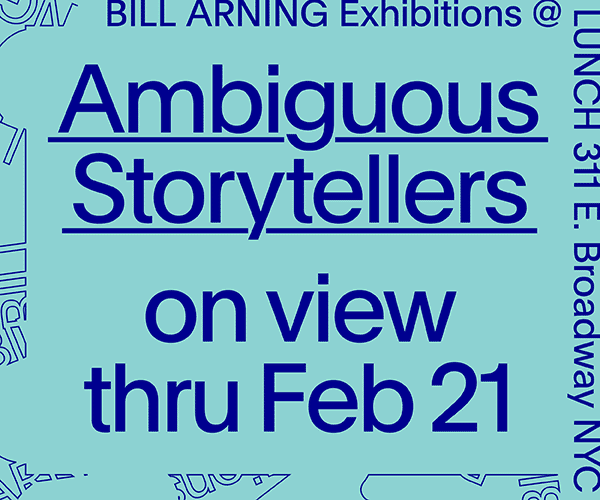


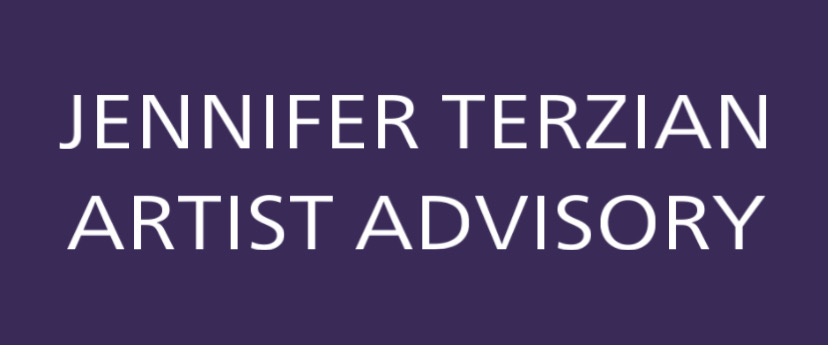


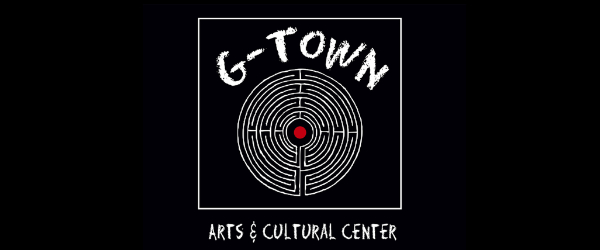











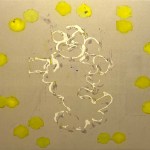



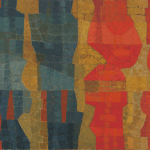

Haha! Good Clean Fun! Thanks!
This made me smile. Your restrained version of Sydney reminds me of the English butler Stevens in “The Remains of the Day.”
Brilliant!
Love this conversation. Especially because .. what if?! It hits upon serious issues ( IA and the future of art) with irony , dread and humor.
Really great! I realized how much of what Bernard points out to Sydney is corporate culture and its language, thinking – which means many humans had already turned themselves into chatbots before the fact!
Fantastic — great writing!
Well done Laurie, another great read.
i just read this in January. 17 , 2025. I am pretty sure this AI bot by now works with Musk and Vance .
Great piece, e.g. “Artificial will lose all meaning”